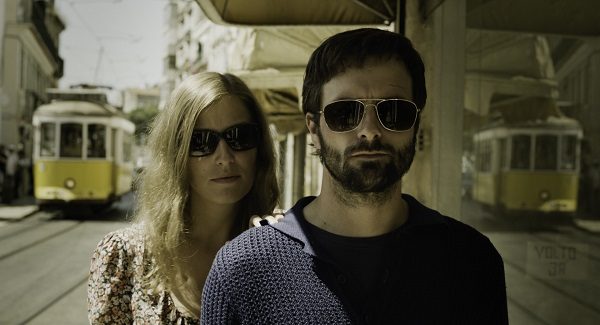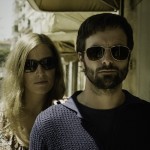“Whoever you are: Step out in the evening from your room where all is known to you; your house is just this side of great distances” – Rilke
French Novelist Marcel Proust said, “The real voyage of discovery lies in not seeing new landscapes but in having new eyes.” Andrzej Jakimowski’s Imagine, a film about the world of the visually impaired, takes us beyond sight to look at the world through different eyes, that of the totality of our senses. Winner of the 2014 Audience Award and Best Director at the Warsaw International Film Festival, Imagine is set in Lisbon, Portugal at an institute for the blind where children are taught to live with their disability, to not take risks, and to be comfortable at all times. When Ian (Edward Hogg) a non-conformist teacher who is also visually impaired is hired at the school, however, the safety of their world is shaken.
Rejecting the use of a cane, Ian teaches the children to achieve spatial orientation by using all of their senses including moving by the resonance of sound vibrations (echolocation), instinct, and the creative use of their imagination. Confident and even slightly over-aggressive, Ian charms the children and gives them a reason to hope, though they are always testing and questioning him to prove that he is one of them and never seem quite convinced of his sincerity. Ian’s sessions take place right under the window of Eva (Alexandra Maria Lara), an adult patient who never leaves her room and does not speak to anybody. Surprisingly, she becomes one of his most responsive students and there is even a hint of romance.
Taking the students out into the streets of Lisbon, we see the city in all its light and beauty, but the blind can see none of it. Ian clicks his tongue and snaps his fingers when he walks, using the sound that bounces off objects to create his own space, teaching the students how to visualize with their ears. As Eva wears a pair of high heel shoes for the first time, the two bond as they begin to trust each other. Together they visit a café (where she flirts with a young man), walk along the harbor and cross busy streets without any aids other than their ability to listen for the sounds of vehicles, footsteps, or other obstacles in their path.
With them is Serrano (Melchior Derouet), a young blind boy whom Ian asks to use his imagination to “see” a ship in the harbor. Jakimowski resists the temptation to idealize Ian or portray the disabled as saints. Neither does he take sides when the new teacher is challenged by the school doctor and head teacher of the school (Francis Frappat) who is concerned that he is giving the children the illusion of hope. Convinced of the value of his approach, however, Ian walks a thin line between taking risks and being reckless and crosses the line once too often.
Supported by the authentic performances of Hogg and Lara, Jakimowski, as in his great 2007 film “Tricks,” creates an atmosphere of poetry and magic with Imagine that challenges viewers to use all of their sense perception to create the world. According to Jakimowski, “We the sighted perceive the world very similarly to the blind. We also don’t see what’s important . . . We’re all blind. In a sense we are blinder than they are. Even more, because in their own way they compensate with other senses.” In this case, it’s the blind leading the blind so that we all can see.





'Movie Review: Imagine (2012)' has no comments